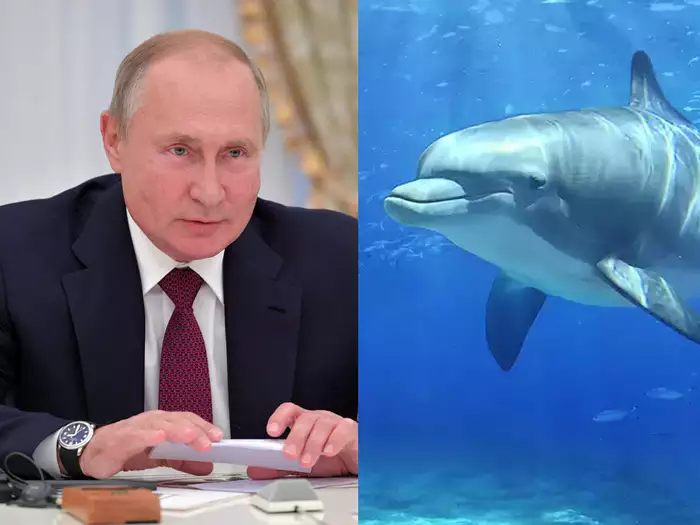Russian Navy Trained Dolphins Deployed in Crimea
Russian Navy Trained Dolphins Deployed in Crimea
ORCA SciComm Team | 29th April 2022
Russian Navy Trained Dolphins may have been deployed in Crimea, with two sea pens having been spotted at one of their bases in satellite imagery since the start of the Ukraine invasion in February, according to the US Naval Institute.

The Sevastopol harbour naval base located in the Black Sea at the southern tip of Crimea, was seized by Russian Military forces since 2014, and is an important strategic location, with many of the Russian Navy ships anchored there. While the Russian ships are out of range of missiles, they are potentially vulnerable to undersea attacks.
In the early 1990's, the Ukraine also had a navy dolphin training program at an aquarium near Sevastopol. Both the US and the Soviet Union developed the use of dolphins whose echolocation capabilities can allow them to detect underwater objects such as mines during the Cold War. The US alone has spent at least $28 million maintaining its own troops of marine mammals, including sea lions and dolphins to join in on warfare. The Sevastopol program was restarted in 2012 by the Ukrainian navy, but the dolphins became part of the Russian army after the 2014 invasion of Crimea, and Moscow has since expanded the scheme.
In 2016, the Russian navy announced plans to buy five more dolphins, launching a bidding process for a 1.75m ruble contract to deliver dolphins to the Sevastopol base by the end of the summer. It is uncertain if the dolphins in Sevastopol harbour sea pens today are the same ones that came out of this contract.
The Russian navy also used dolphins at its naval base in Tartus, during the Syrian War.

At least 9 navy trained bottlenose dolphins were flown by the U.S. Navy to the Persian Gulf during the conflict in Iraq to help mark mines and clear waterways for shipments of humanitarian aid. Other frontline flippers include California sea-lions which were deployed for "Mission Operation Enduring Freedom" in continuation of the War in Afghanistan. Sea lions were used as 'shallow water detection systems', to locate suspicious underwater objects. The U.S. and Russian navy train dolphins to locate, detect and mark mines so that they can be deactivated safely before they damage or sink military or civilian vessels. The navy dolphins can also detect and mark enemy swimmers.
Current counter-mine and obstacle avoidance technology is inadequate, and limits the Navy's capability to conduct shallow water (SW) and very shallow water (VSW) searches for mines in support of beach assaults by Marine Corps forces. Marine mammal systems (MMS) are albeit an unusual, yet effective solution to current problems of mine and obstacle hunting. In the US Navy Mine Warfare Plan for 1994-1995 Marine Mammal Systems are explicitly identified as the Navy's only means of countering buried mines and the best means for dealing with close-tethered mines. The dolphins in these systems possess a biological sonar specifically adapted for their shallow and very shallow water habitat. Research has demonstrated that the dolphin biosonar outperforms any current hardware system available.
In 2019, a beluga whale believed to be trained by the Russian Navy was sighted off the coast of Norway! Now Putin has been seen to use dolphins sonar and detection capabilities again since the start of the Ukraine invasion.

References:
Bionic kitty, pigeon alarms, and the dolphins of war Auer, Catherine. Bulletin of the Atomic Scientists; Chicago Vol. 59, Iss. 4,
Patrick W. Moore "Mine-hunting dolphins of the Navy", Proc. SPIE 3079, Detection and Remediation Technologies for Mines and Minelike Targets II, (22 July 1997); https://doi.org/10.1117/12.280845
SHARE THIS ARTICLE













